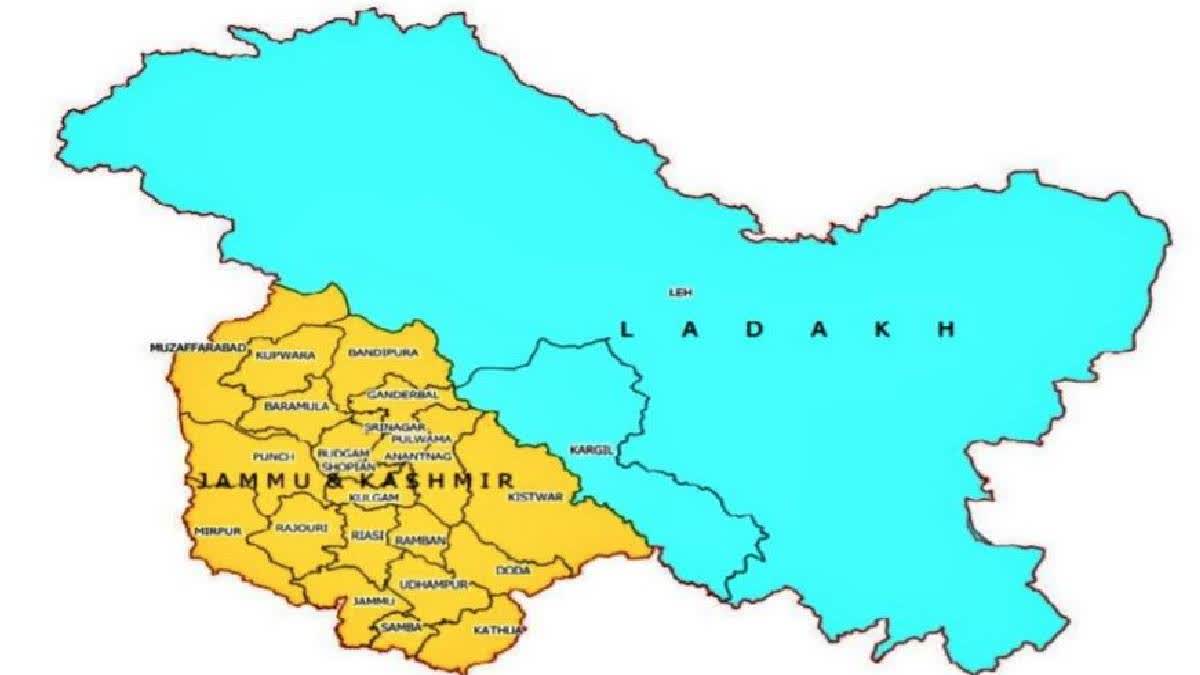Srinagar (Jammu and Kashmir):The aftermath of the "controversial" abrogation of Article 370 in August 2019 has been characterised by a series of policy decisions aimed at reshaping Jammu and Kashmir's socio-political landscape. While these decisions were envisaged to usher in development, inclusivity, and integration, they have also triggered a cascade of reactions, yielding a complex fallout that warrants scrutiny. Here is a timeline of some of the top policy decisions taken by the government since August 5, 2019.
2019:
August 5: The Indian government revokes Article 370, effectively nullifying the special status of Jammu and Kashmir. The region is reorganized into two separate Union Territories – Jammu & Kashmir, and Ladakh.
2020:
January 22: The Jammu and Kashmir Reorganization (Adaptation of Central Laws) Order, 2020 is issued. This adaptation paves the way for several central laws to be extended to Jammu and Kashmir, ensuring greater uniformity with the rest of India.
April 1: The government inserted a clause for domicile category under which a person has to stay in the Union Territory for a period of 15 years. Children of all-India services personnel who have served there for 10 years also come under the category.
2021:
February 6: The Jammu and Kashmir Reorganization (Adaptation of State Laws) Order, 2021 is promulgated. This order adapts various state laws to align them with the constitutional changes post-abrogation of Article 370.
April 3: The Jammu and Kashmir Industrial Land Allotment Policy, 2021 is introduced. The policy aims to attract investment by making land available for industrial purposes.
August 5: On the second anniversary of Article 370 abrogation, the Jammu and Kashmir Lieutenant Governor Manoj Sinha announces Jammu & Kashmir Film Policy 2021. The policy is aimed to transform Jammu Kashmir into the most preferred destination for the Entertainment Industry, reviving J&K’s halcyon days of being a cinematographer's delight and bringing back the Golden Era of film shooting in J&K.
